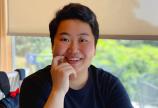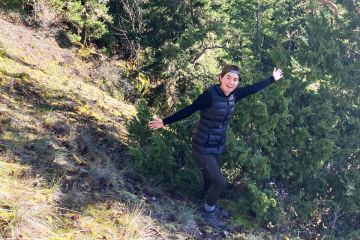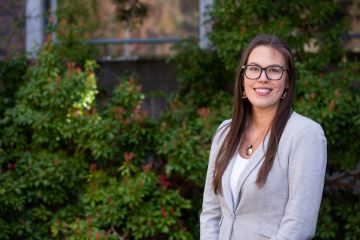Cultivating BIPOC community on campus
- Philip Cox
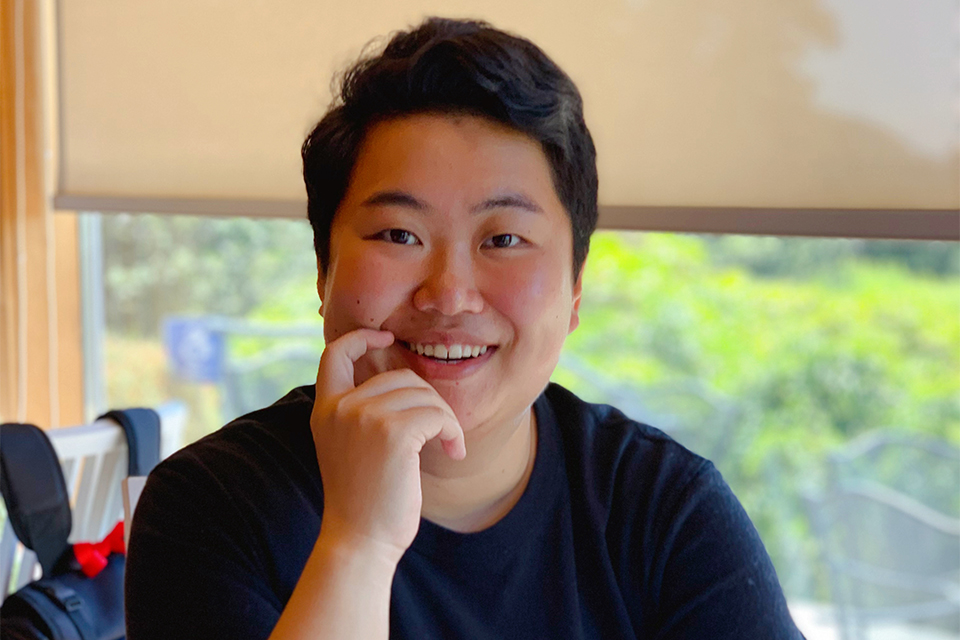
It’s hard to believe that when she arrived at UVic from Xian, China in 2013 to pursue an MA in English, Amy Tang’s biggest challenge was making friends.
Tang, who graduated with her PhD in English this month, is now well-recognized as a researcher, visual artist and community organizer. She was hired straight from her PhD this summer to a tenure-track position with the department of English at the University of Fraser Valley—an increasingly rare and impressive feat, made all the more notable for occurring at the height of the pandemic, when few employers were hiring at all.
The choices she made, in recognizing and responding to the environment she first found herself in at UVic, have played a defining role in her success.
Breaking barriers, building community
“When I first came to UVic, the majority of my cohort was Canadian. Because we had different cultural references and lifestyles, I found it very hard to make small talk and enter into conversations,” she says. “It felt like people were reluctant to talk with someone with a heavy accent or who wasn’t from their culture.”
Tang began to notice that other members of her program were having experiences similar to her own. “I felt like all the international students, and especially students of colour, were marginalized. They sort of disappeared after class, having fewer coffees or dinners with friends from the department. They were never there because they didn't feel comfortable going, because they weren’t really friends. Do you know what I mean?”
The turning point in Tang’s experience came during her second year, in a course with her future PhD supervisor Stephen Ross (this year’s winner of the REACH Award for Excellence in Graduate Supervision and Mentorship). “Stephen Ross really opened up dialogue among us students and broke down structural barriers that existed outside of the classroom. I felt more able to participate in the class.”
By the time she started her PhD two years later, she had a broad, supportive network on campus and was thriving academically. “Without such support, I would not be where I am today. During my time at UVic, all the mentors, colleagues and friends I met were exceptionally smart, professional and kind,” Tang says.
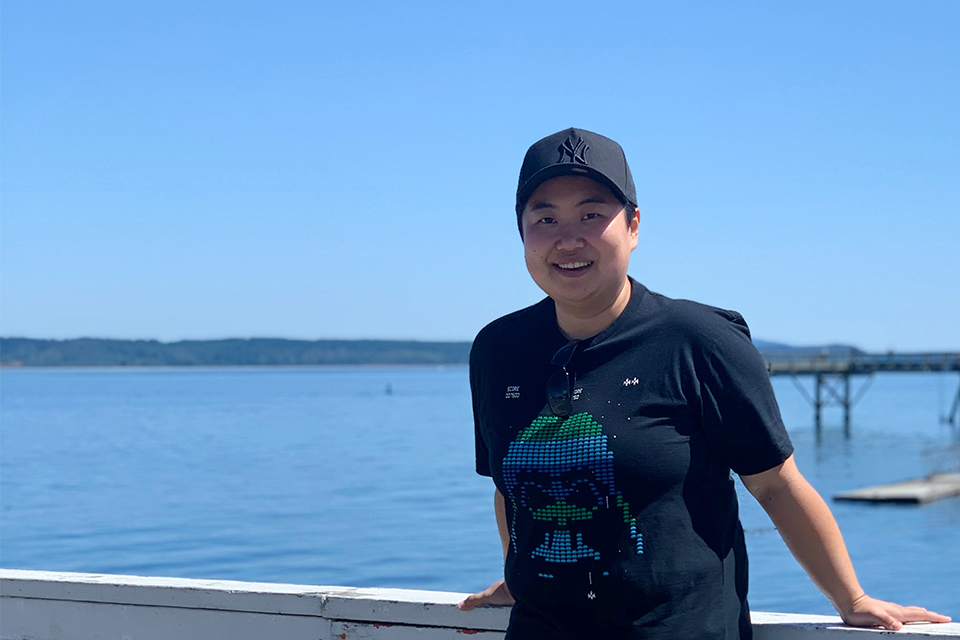
The most important thing I learned from Dr. Ross is that academia is so much more than scholarship.
—Amy Tang, UVic class of 2020
Leading outside the classroom
The support and kindness that Tang received inspired her to pay it forward by supporting other students in a position similar to her own. Along with another English PhD student, Alana Sayers, she then co-founded the BIPOC English Grad Student Support Group, which aims to combat systemic racism at UVic and build long-term community for Black, Indigenous and other English graduate students of colour at the university through social events and regular online meetings.
“I really wanted to make a change—even a small change,” Tang explains. “Alana and I wanted to start with something pretty small, like meeting to have a coffee or just saying ‘hi.’ I think those daily experiences, those small conversations, make a big difference for people. It makes them feel more comfortable and welcome.”
Tang had already found success with this model in another group that she co-founded a year earlier with English PhD student Kevin Tunnicliffe, The Mod Squad. Open to students from all programs and disciplines, the group has met regularly since 2018 to talk about modernist literature and poetry outside of disciplinary constraints, breaking down barriers to interpersonal and intellectual exchange by building communities focused on commonality and the sharing of personal experiences.
Several faculty members have noted that they consider themselves lucky to have worked with her during her time on campus, citing her wide-reaching intelligence, good humour and generosity of spirit.
Amy brought a real energy to the Faculty of Humanities and helped expand its possibilities. Her advocacy on behalf of BIPOC students and faculty came as part of a matched pair with her formidable intellect and remarkable work ethic. She both modeled for other students how to be successful and nudged our department as a whole to be better. We were very lucky to have her.
—Stephen Ross, UVic professor and graduate adviser
Photos
In this story
Keywords: convocation, student life, gender, Indigenous, international, racism, graduate research
People: Amy Tang, Stephen Ross, Alana Sayers, Kevin Tunnicliffe
Publication: The Ring

